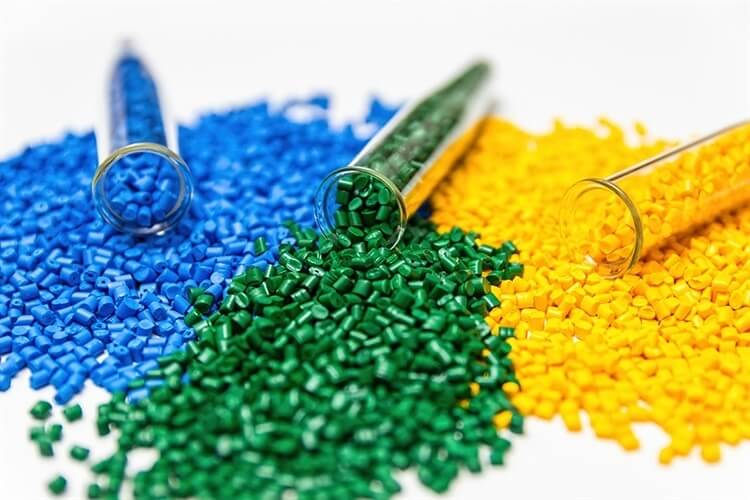Custom Polymers: Tailored Solutions for Distinct Applications
Custom Polymers: Tailored Solutions for Distinct Applications
Blog Article
Checking Out the Varied Applications and Benefits of Polymers in Different Industries
Polymers, with their varied variety of residential or commercial properties and capabilities, have become indispensable in various sectors, each enjoying unique advantages from their application. From improving safety and efficiency in the automotive market to transforming clinical tools in the health care sector, polymers play a critical duty.
Automotive Market Applications
Polymers play an essential duty in boosting the performance and resilience of different parts within the automotive sector. One popular usage of polymers in the auto industry is in the production of lightweight components.

Medical Care Industry Benefits
In different health care applications, the benefits of utilizing polymers are extensively acknowledged for their varied variety of useful buildings. Polymers play a crucial role in the medical care market due to their adaptability, biocompatibility, and cost-effectiveness. One of the key advantages of polymers in healthcare is their ability to be tailored to details needs, such as adaptability, durability, and biodegradability, making them perfect for a broad range of medical applications.
Polymer-based products are extensively utilized in medical tools, such as catheters, implants, prosthetics, and medicine shipment systems, because of their biocompatibility and ability to mimic natural cells. These materials can decrease the risk of sensitive responses or beings rejected, enhancing patient safety and security and end results. Furthermore, polymers are lightweight, making them ideal for wearable clinical gadgets and guaranteeing person comfort.
Moreover, polymers enable the advancement of innovative therapy methods, such as hydrogels for tissue design and nanocomposites for targeted medication distribution. Their ease of handling and sterilization makes them vital for maintaining high requirements of health in healthcare setups. On the whole, the diverse benefits of polymers add substantially to innovations in medical innovation and patient care.
Ecological Advantages of Polymers

Additionally, polymers can add to power financial savings due to their lightweight nature. In industries such as transportation, lightweight polymer materials can help in reducing gas intake and greenhouse gas exhausts. In addition, polymers can enable the development of energy-efficient products such as insulation materials that improve energy conservation in buildings.
Additionally, polymers play a crucial role in decreasing water pollution. The use of polymer-based filtering systems can efficiently eliminate contaminants and pollutants from wastewater, protecting water resources and communities. Overall, the environmental advantages of polymers make them beneficial properties in advertising sustainability and environmentally friendly practices throughout click resources different markets.
Polymers in Electronics and Technology
Considering the increasing demand for cutting-edge and lasting solutions in contemporary sectors, the assimilation of advanced polymer innovations in the world of electronics and innovation has actually emerged as a critical strategy for driving performance and efficiency. Polymers have changed the electronics industry by making it possible for the production of lighter, extra versatile, and durable digital devices. From smart devices to medical tools, polymers play an important role in boosting item style and capability.
One considerable advantage of polymers in electronics is their shielding buildings, which assist shield delicate electronic parts from environmental aspects and electrical interference. In addition, polymers are important in the advancement of flexible displays, wearable innovation, and published electronics, offering endless possibilities for developing smart and interconnected gadgets.
In addition, using polymers in electronic packaging has actually led to improvements in miniaturization and thermal monitoring, improving the general efficiency and integrity of digital systems. As technology continues to progress, read the full info here the versatility and adaptability of polymers will most certainly drive further development in the electronic devices market, forming the future of modern technology.
Duty of Polymers in Construction and Infrastructure
Polymers supply countless benefits in the building and construction market due to their adaptability, toughness, and cost-effectiveness. One essential role of polymers in building and construction is their usage in finishings and sealants, giving security against ecological elements such as moisture, UV radiation, and deterioration.
Furthermore, polymers play an important role in lasting construction techniques by allowing the growth of energy-efficient structures. Shielding materials made from polymers aid control indoor temperature levels, reducing the requirement for heating and cooling down systems and ultimately reducing power usage. Furthermore, the usage of polymer-based compounds in facilities tasks such as bridges and roads boosts their longevity and minimizes maintenance expenses. On the whole, the consolidation of polymers in building and construction and infrastructure displays their substantial influence on contemporary design practices.
Final Thought
To conclude, polymers play an important role in numerous sectors such as automotive, healthcare, ecological, electronic devices, and construction. Their flexible homes make them useful in creating innovative remedies and items. From improving fuel effectiveness in lorries to enhancing medical gadgets, polymers use many benefits. Furthermore, their effect on minimizing waste and promoting sustainability highlights their significance in contemporary applications. The widespread use polymers demonstrates their substantial payment to progressing modern technology and improving Visit This Link quality of life.
Report this page